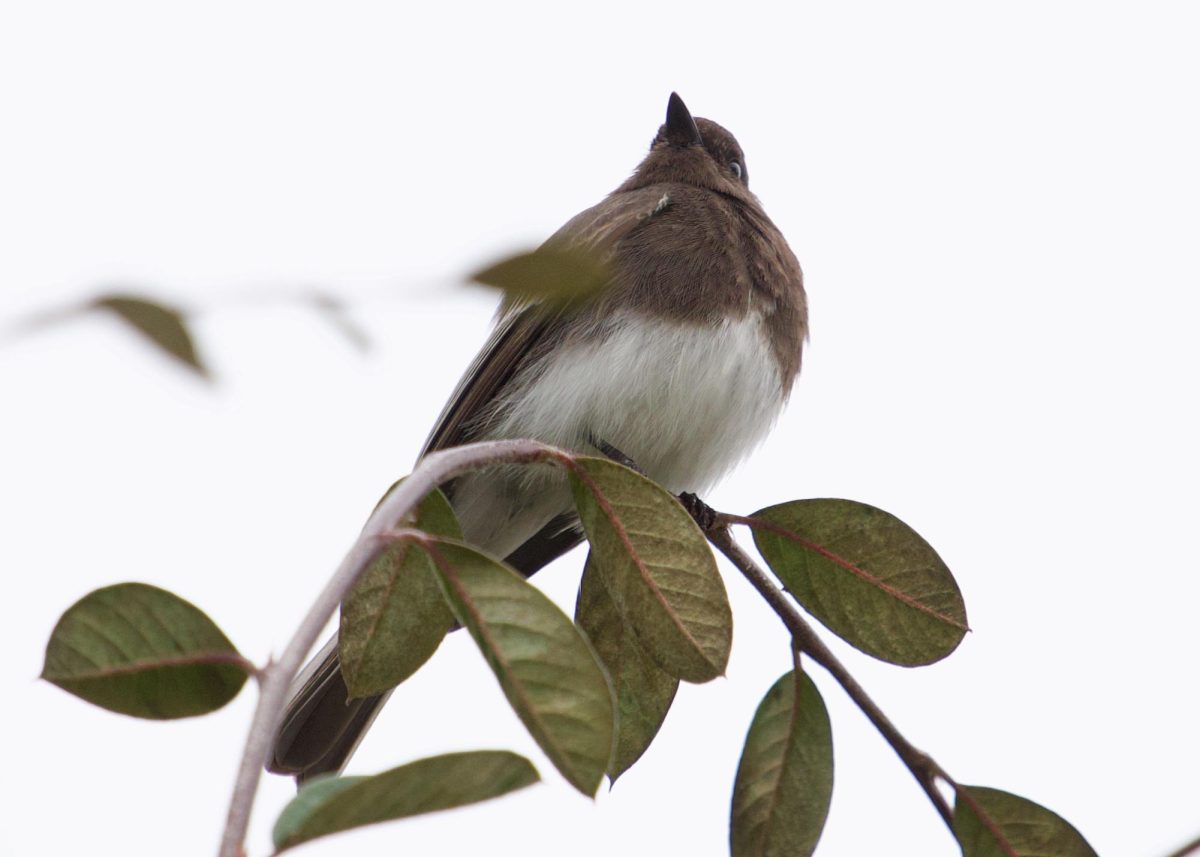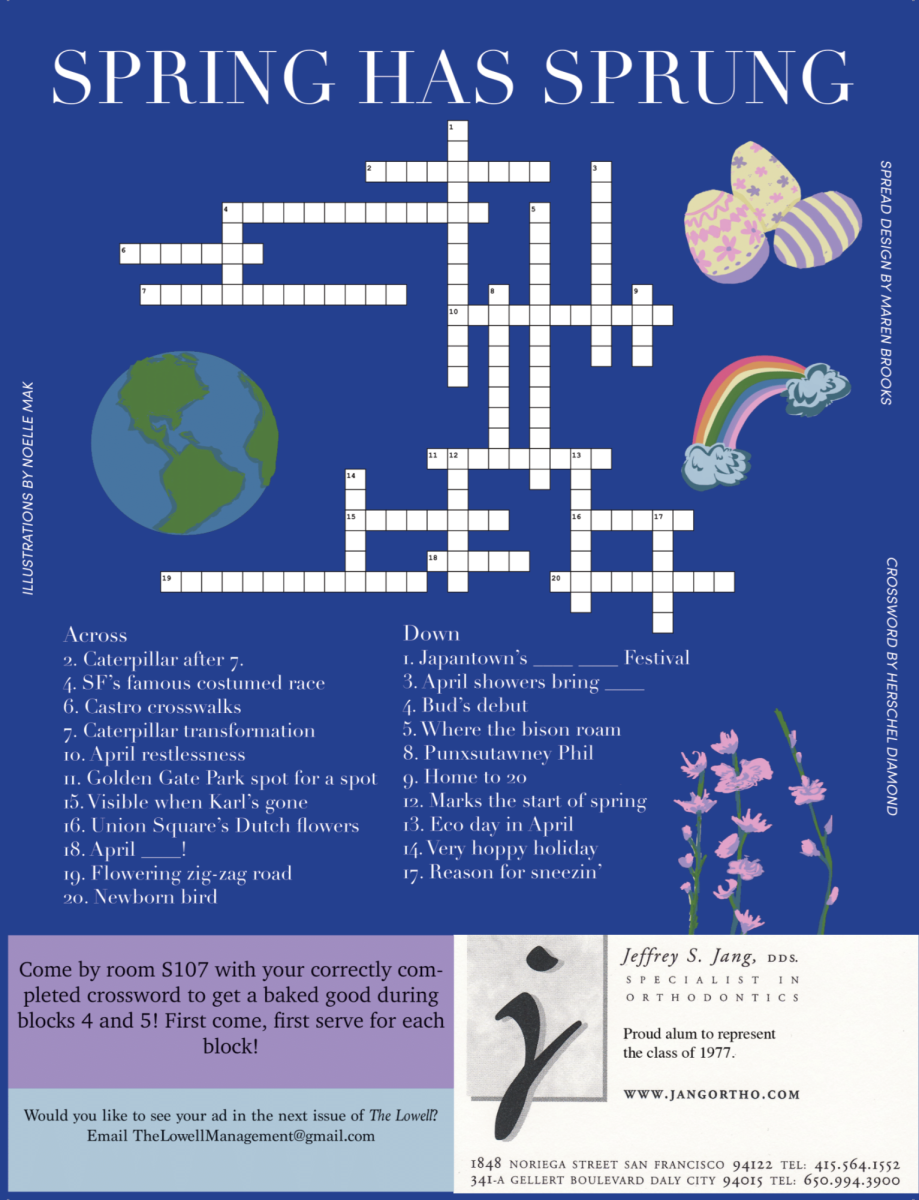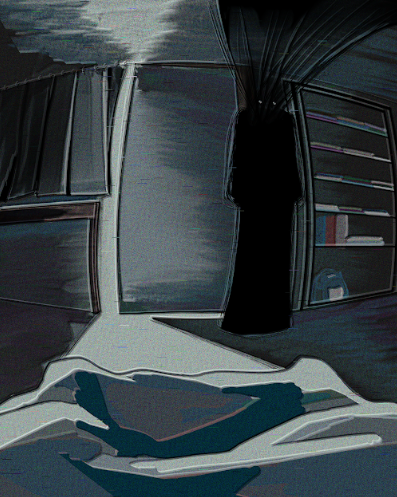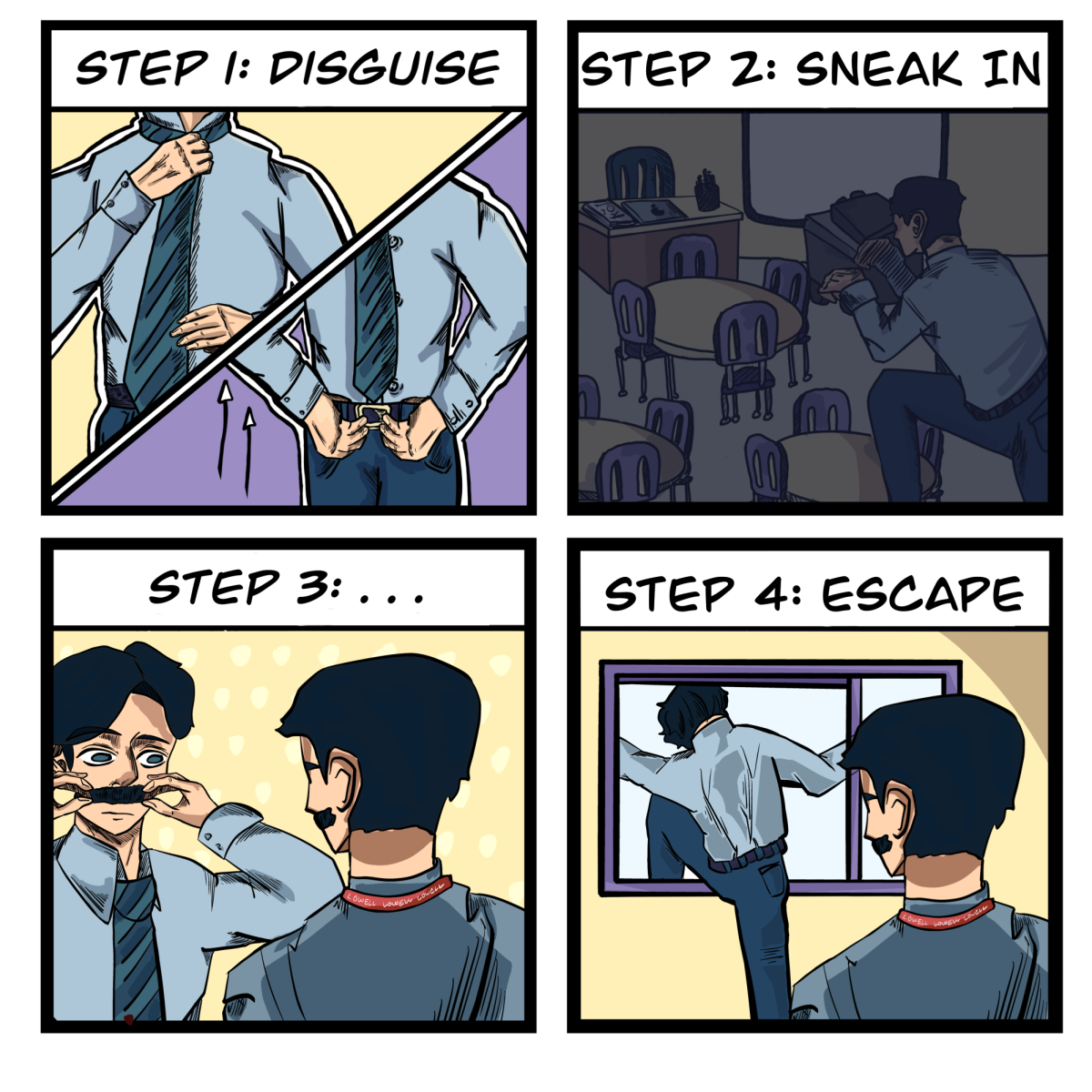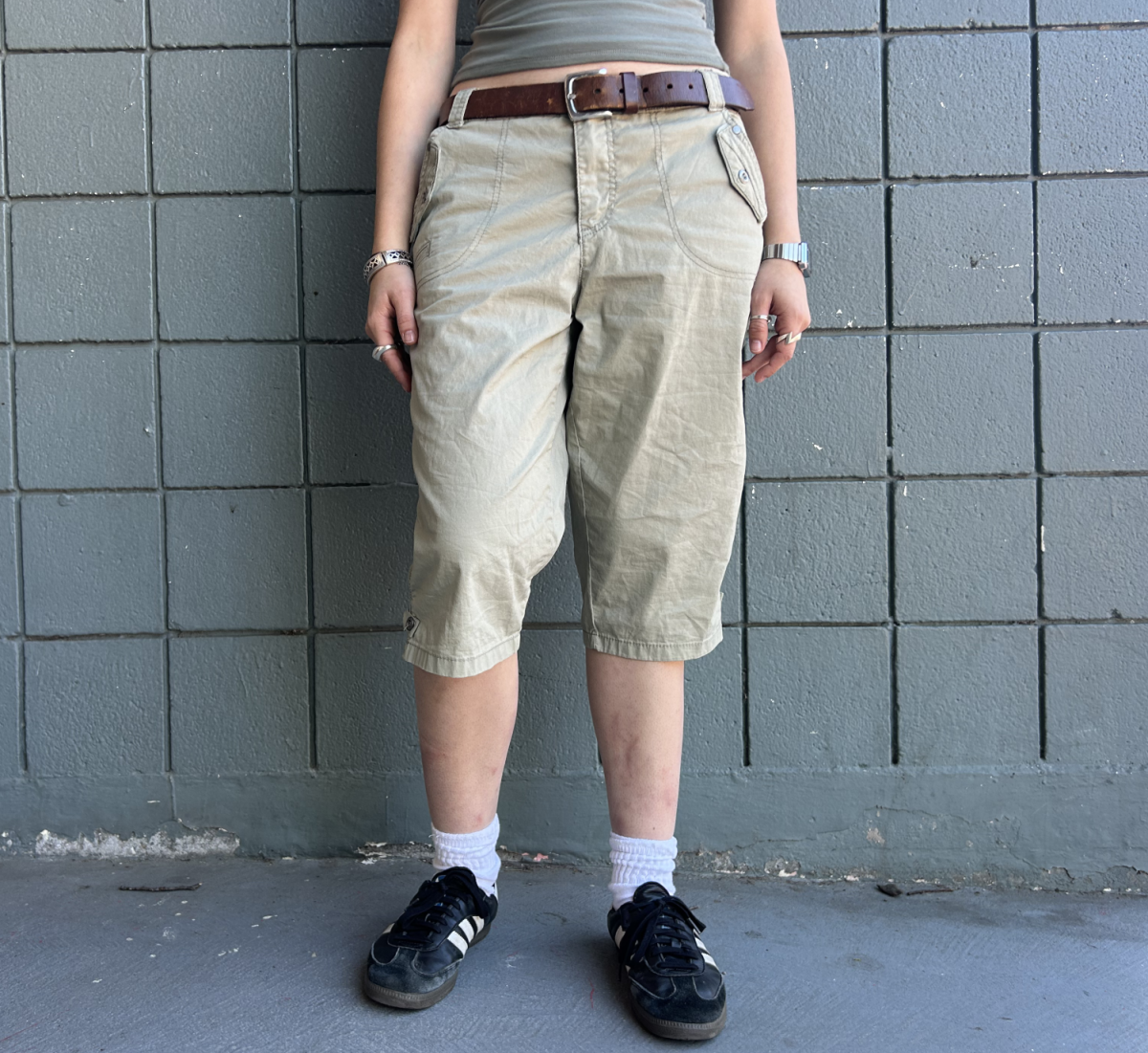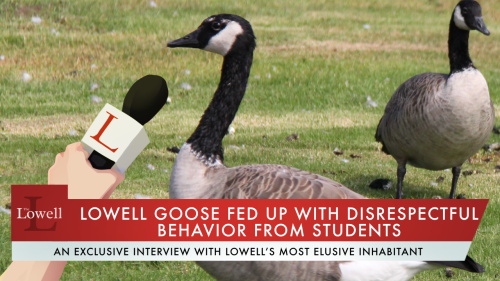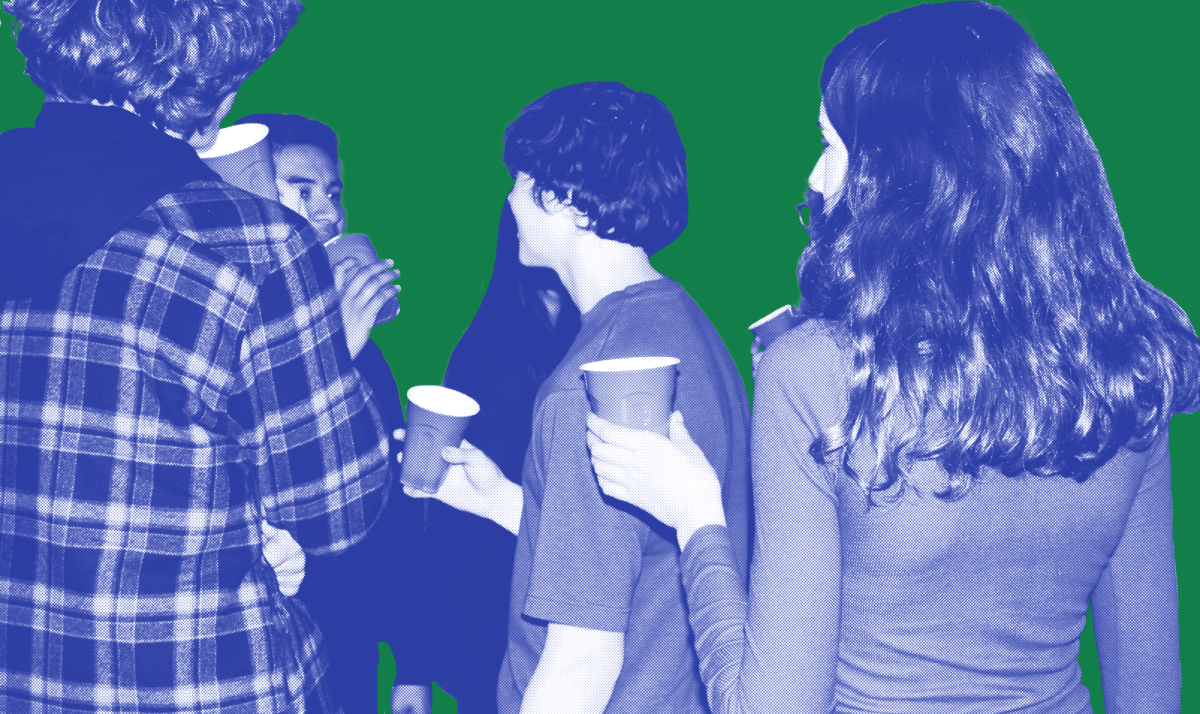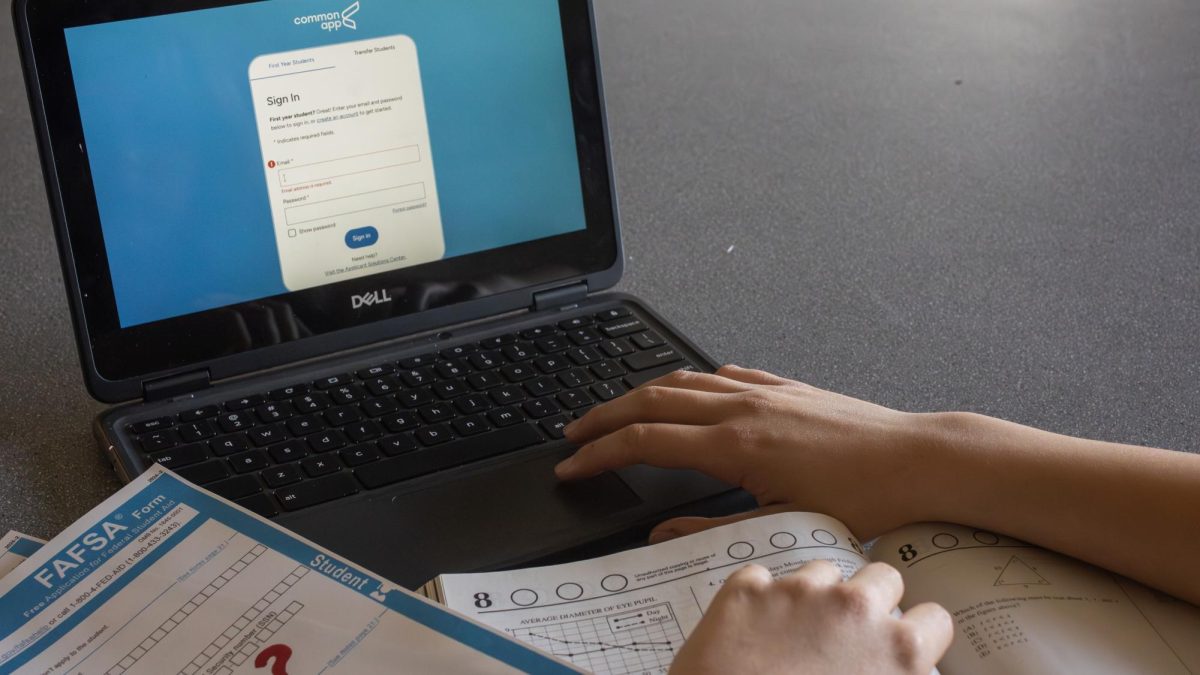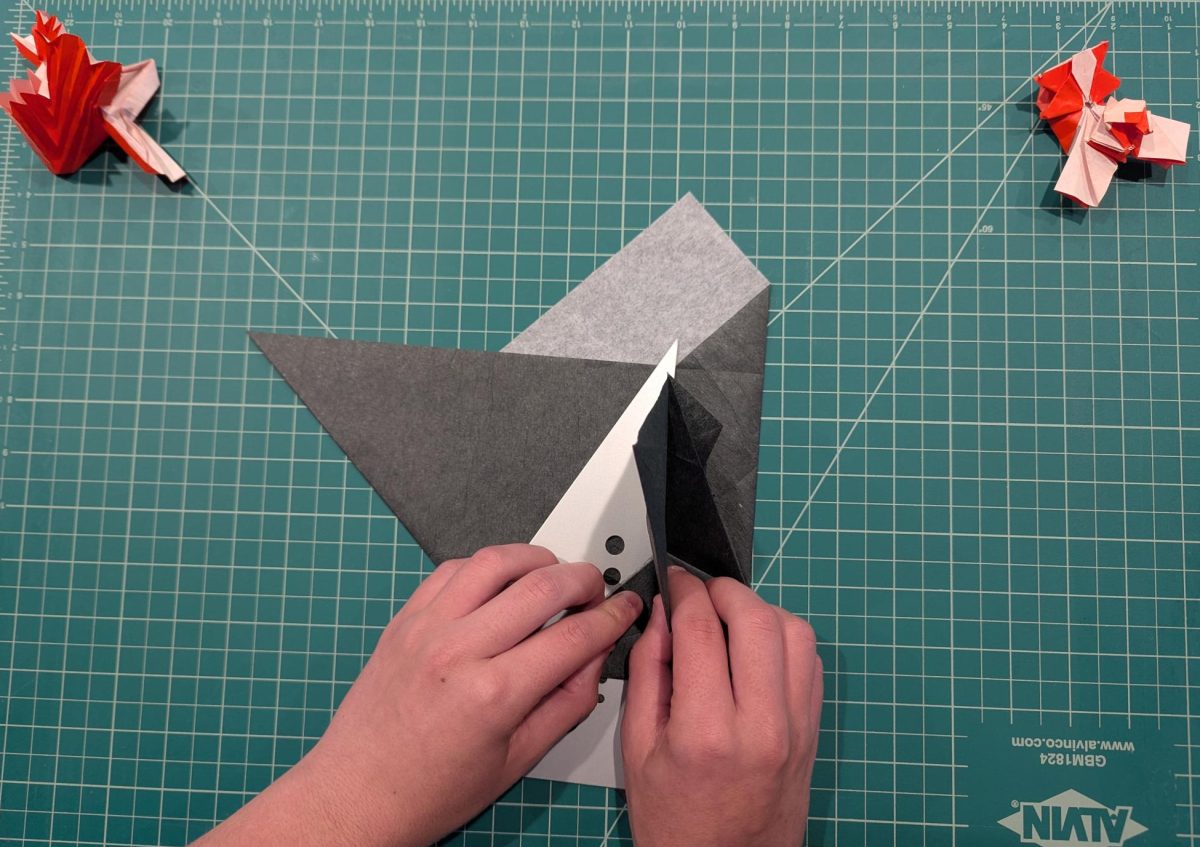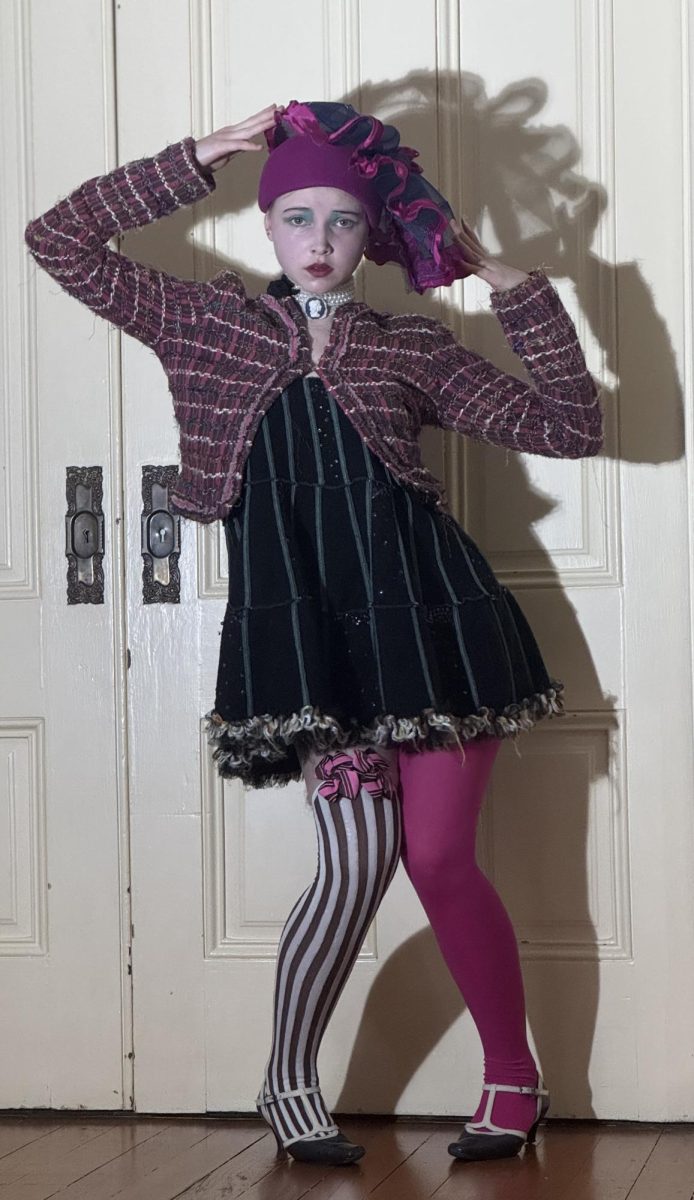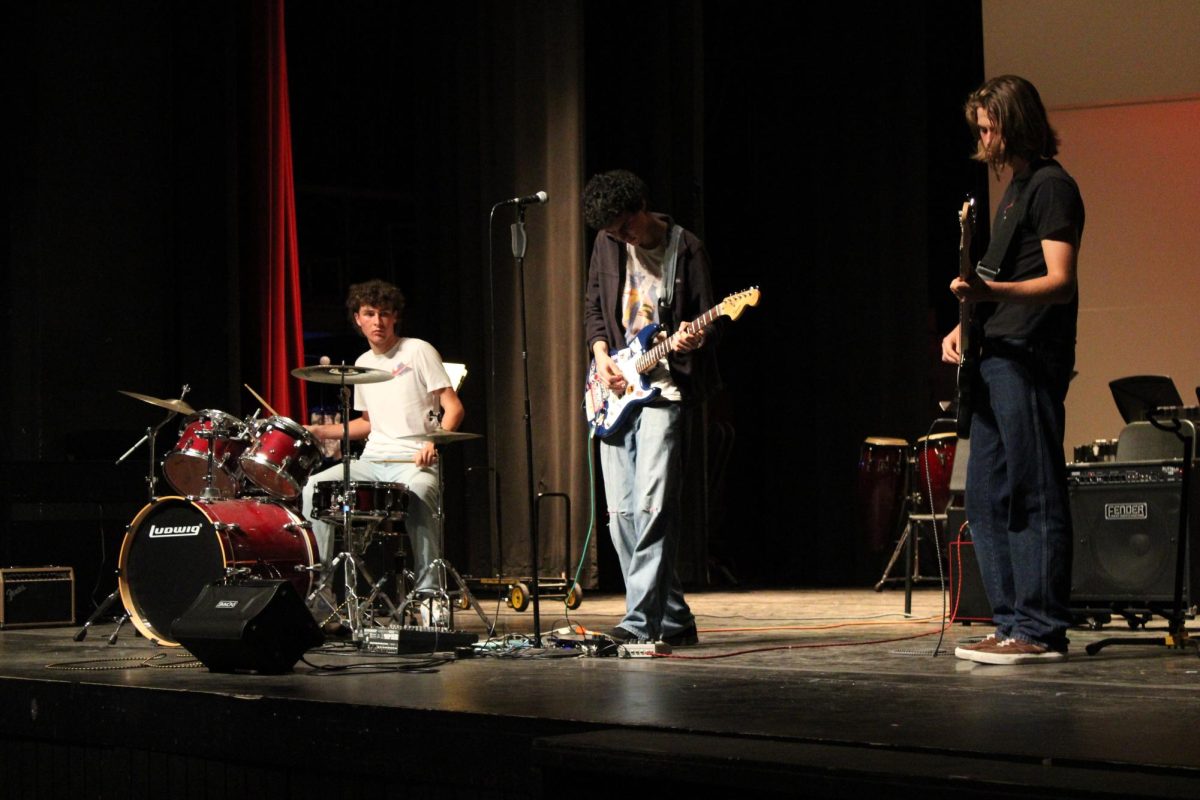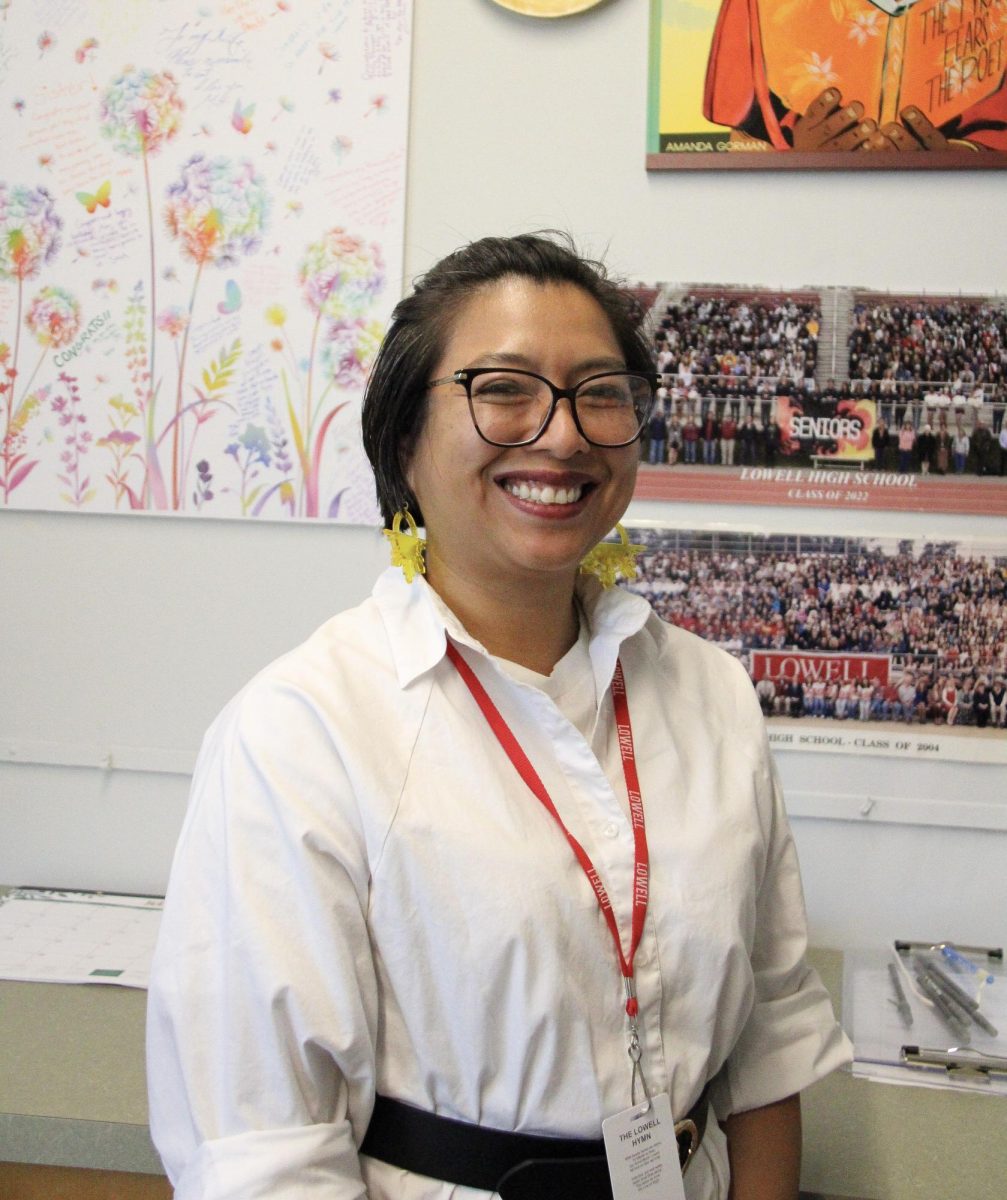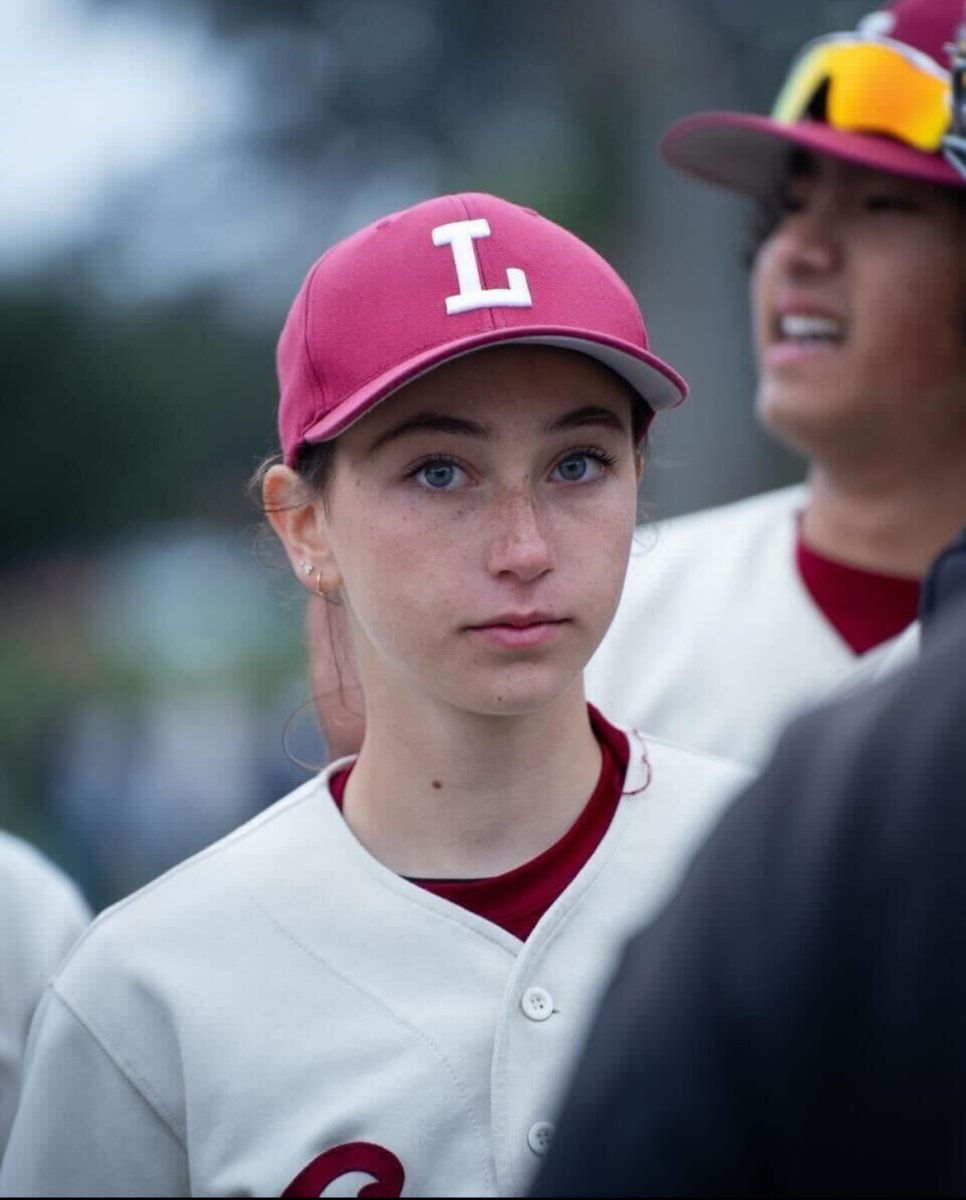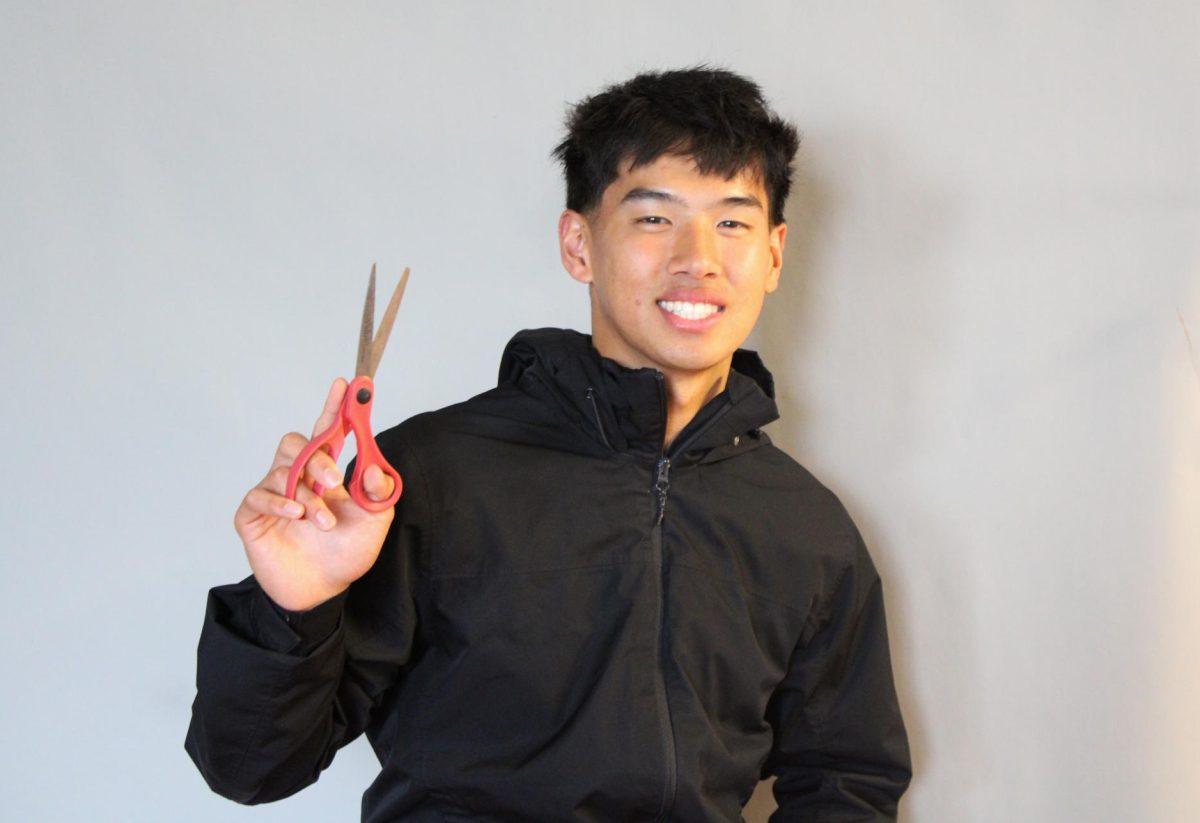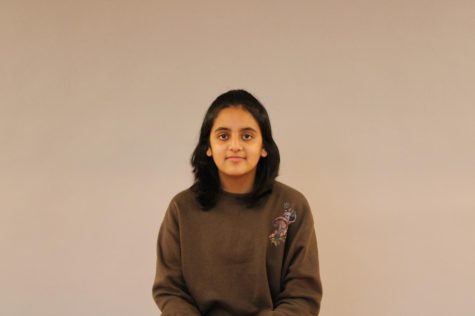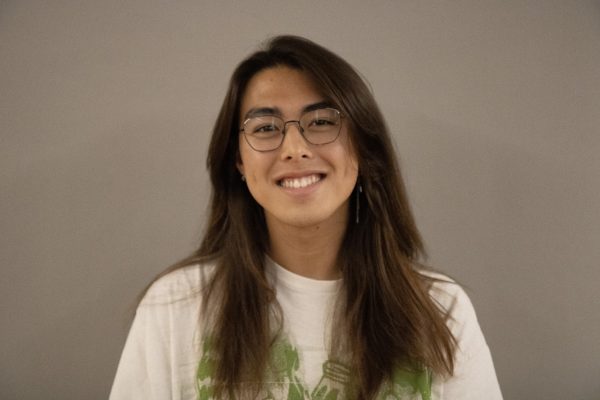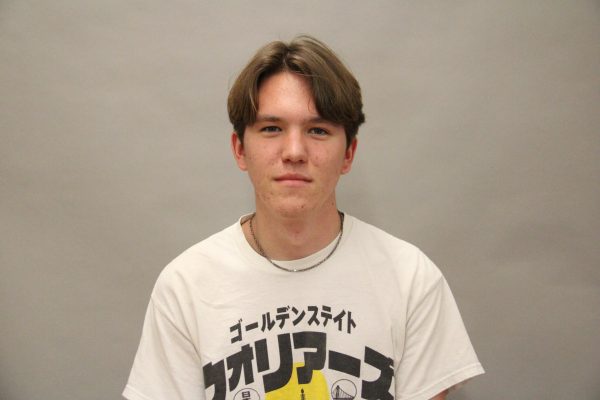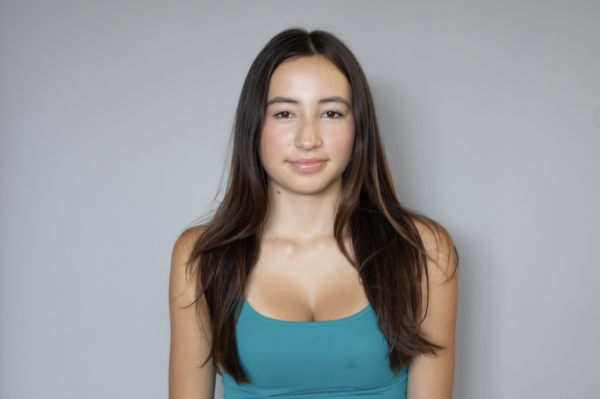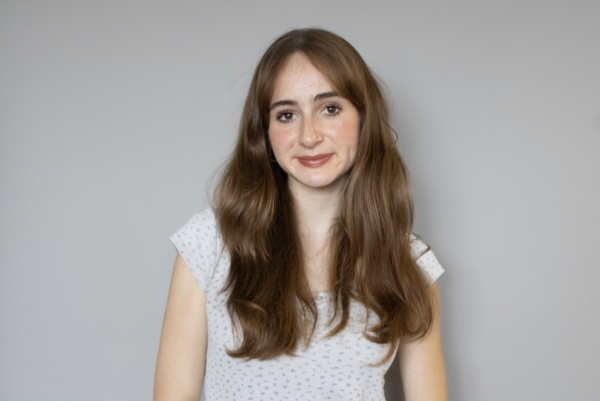Jarrod Roland, English, history, and special education teacher
By Mehreen Shaikh
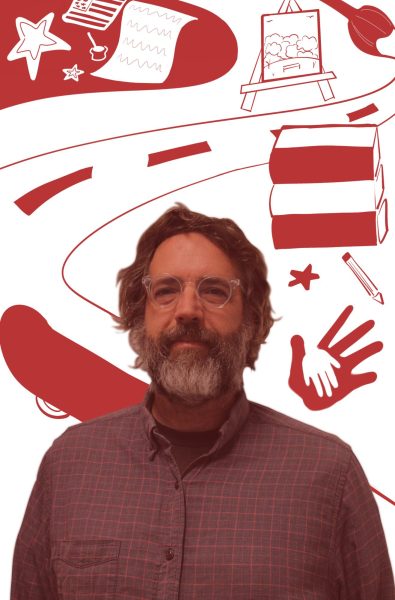
Jarrod Roland is an English, US history and special education teacher who first moved to San Francisco in the 1990s to become a professional skateboarder. He knew he never wanted a boss who told him what to do, so he started working various jobs and finally settled on teaching. He feels that he has a natural gift for talking to students, and believes that teaching is his calling.
Could you tell us a little bit about yourself?
Well, I’ve lived in San Francisco for a long time. I moved here for skateboarding. I wanted to be a professional skateboarder, but when I moved here in the 90s, skateboarding was a big thing. Everyone skated down at the Embarcadero, and I moved here. I’ve lived here for a long time. I’m a poet and a father, and I have a family.
What inspired you to be a teacher?
I’ve always felt that I’ve had a natural gift and I’ve always felt that that was something I was good at. It took me a long time to become a teacher. I did a lot of other things, other jobs, almost everything you could imagine, and nothing really made me feel that good. I never really wanted to work for somebody else, to have a boss or corporation. I never really felt any value in that, and one thing about being a teacher [is that] students are kind of my boss. They’re the ones I serve, primarily, and students are pretty good bosses.
What’s your favorite part of teaching?
Talking to students. I do get really excited about stories I’m teaching or concepts in teaching or things I’m talking about. My favorite thing about teaching is having class discussions or students talking to me outside of class time.
How have you liked Lowell so far?
I love it. The staff is really, really nice and people keep coming into my room to see if I’m okay, and everyone’s introducing themselves to me and everyone’s so nice. The students are also very nice, they seem very driven here. Most students know what they really want to do and what they’re passionate about, what they’re doing. My only thing is that I wish they weren’t so concerned with grades, but I understand.
What made you come to Lowell?
I was asked if I wanted to come here and teach. I was at Lincoln High School, and they offered me a job and I really didn’t want to leave the community that I had at Lincoln, but I really wanted to try something new and I’d heard so many different things about the students here and about the teachers and I really wanted to try something new.
What are your hobbies?
Well, I write poetry, I draw, I make art, I read poetry quite a bit, I like to go on hikes, and I skateboard.
Anything else you would like to say to the Lowell community?
As a new teacher here at Lowell, the only thing I would like to say is that grades aren’t everything.
Paul Wangsvick, English teacher
By Thomas Harrison
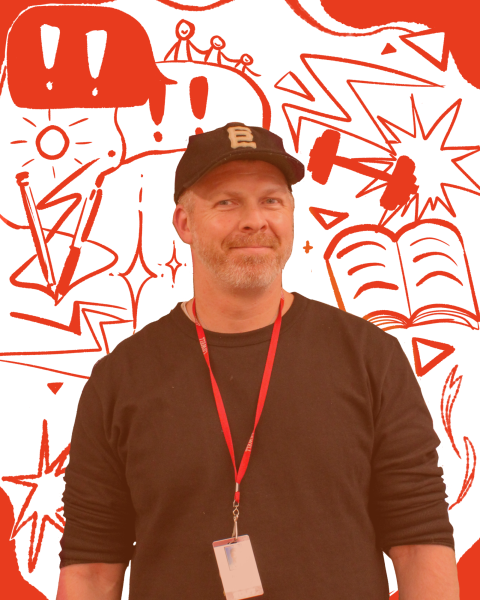
Paul Wangsvick doesn’t think he was the type of student that would have made it at Lowell. When he began high school, all he wanted to do was leave high school and start working. He felt unsupported by his teachers, never studied a day in his life, wanting to spend his time learning practical skills instead of conceptual ideas. Now, through his English classes, he wants to be the teacher he wished he had when he was a teenager.
What’s your favorite part of teaching?
I always like when I’m able to help students get to an epiphany. Usually we call them the a-ha moments, [when] you have guided questions or another way of helping [students] see things. Ideally, you had some small part in helping them learn something that they maybe wouldn’t have been able to do on their own.
What’s something that your students would be surprised to find out about you?
I try to be pretty transparent. As a teacher I take my job seriously, but as a student I was kind of lackadaisical. I sometimes jokingly tell my students that I wouldn’t have been the kind of student that would have been at Lowell… I didn’t make good choices when I was younger, and I try to be honest about that to normalize that everyone reaches their potential in different ways.
What was your high school experience like?
I wasn’t really into it. When I was a kid, the one thing I wanted to do more than anything was take this thing called the California Proficiency Exam, which is like a GED. I was ready to take it in ninth grade, and I was ready to work, and my parents were just vehemently against it. I spent a lot of time thinking about wanting practical skills, and not just sitting in the classroom thinking about conceptual ideas. I didn’t have the vocabulary to articulate all that at the time, but I knew that I wanted something that was a little bit off the beaten path.
Now, you teach English, which is a particularly conceptual class. How did you grow into that?
I had a couple really positive role models, my dad more than anybody else. He would ask me a lot of deep philosophical questions, [since] he was a PhD-trained philosopher. I’ve had teachers in my life who didn’t give up on me. I’ve had other people that just loved literature, loved poetry, or loved something that allowed creativity and the ability to articulate and argue. Once you find a niche that really fits your curiosity, it makes the process a little bit easier.
When did you make up your mind about wanting to finish high school?
To be honest, I spent every day not being a fan. I did what I was supposed to, because it was what my parents wanted, and I wasn’t the kind of kid who would rebel against my parents. That did kind of factor into some of my later life choices. Had I not been forced to do things I didn’t want to, maybe I wouldn’t have taken such drastic choices as a young adult. I was still figuring out what I wanted and how to do it in a way that didn’t piss off everybody else around me.
Did you go to school in the Bay?
I went to El Camino in South San Francisco.
How does that contrast with Lowell?
It depends. The culture has changed quite a bit in terms of what life was like in the 90s versus now. The neighborhood I grew up in was very much blue collar. The parents of the kids I went to school with for most of my life were carpenters, or construction workers, or cops. There weren’t a lot of highly educated people in the community; They were there, but [that education] wasn’t on full display regularly. With Lowell, I’ve had different family members who’ve gone here, and there was always an expectation of academic excellence. For those who didn’t like that or weren’t up for the challenge of being constantly pushed, it wasn’t really a good fit. If I was in this community growing up, I don’t think I would have hacked it.
How did those experiences from high school impact your philosophy as a teacher?
One of the things I grew up with was this Protestant work ethic from my dad. That was this idea that whatever you want, you got to work your tail off to get. That doesn’t necessarily mean academics, but later that came to be true for me. It was just the idea that whatever you set your mind to, you really have to commit yourself from start to finish on the task. Eventually that transitioned from things like I’m gonna help a family member build a deck, to I’m going to read this book from start to end, and not make excuses for why I didn’t finish it. Or, I’m gonna write that essay even if it’s terrible just because I have to get it done. I could see that there were skills I was lacking that I had to get better at, and slowly but surely that transitioned from working with my hands to working with my mind.
How were your grades in high school?
I was a lazy intellectual. I graduated high school with a 3.5 GPA and I never studied a day in my life. I just winged it all the time. You kind of get used to figuring out how the game is playing, and you look for shortcuts, or the path of least resistance. It’s a different form of intelligence, because it’s not academically studious, but when you realize what you have to do in order to get from point A to point B with the least amount of effort, you find ways to make it work. I could have done better, but I also could have done worse.
Looking back, do you feel satisfied with how you did?
I think part of the wisdom of getting older is as you look back and realize you made some mistakes or that there were things you could have done differently, but you also have to factor in that I am in this place in my life because of some of those choices. I had bad experiences with certain schools or had different life experiences where I worked in different industries and all of those things kind of fell in such a way that pushed me in different directions to finally reach where I am now, and I’m not unhappy with that. I think you reach a point where you come to terms with it, and at least for me, I feel pretty happy about how I had to fail at a few things, and I had to have frustrations with a few things to finally make better choices, and as a result, have better outcomes.
What inspired you to become a teacher?
I think two things. One, I always wanted to be the teacher that I wish I had but didn’t. I had a couple really bad teachers growing up that really soured the whole experience for me; I didn’t feel heard, I didn’t feel supported. I had a few along the way that legitimately had my back and checked in on me. A collection of different people made me think, well, maybe I can do this, and when I went to grad school I got a tuition waiver in exchange for teaching. It was not my first choice by any means, but as a result of that experience I started to like it, and so I started to dabble more into it until it became my occupation.
What specifically do you wish your teachers had done for you that you’re trying to do now?
I think the perspective has changed. As a student, I felt that a lot of teachers would dogmatically give you a lesson and just sort of expect you to figure it out. They weren’t guiding you through the process, they weren’t available for help, and it felt like whatever help they did give you was insincere. And so, it kind of felt like I was inconveniencing them, or that the act of me asking a question was an insult to them because [it meant] they didn’t explain it well enough. So, as a teacher, I always thought it was really important to go out of your way to reassure and engage your students, and show an interest in their learning, or at a minimum, them as a person, and make sure that they’re okay in that room, in that moment right now. Because, whatever’s going on in their life, if there’s other obstacles, the learning that takes place in the classroom is secondary to those things. And, so, you need to be cognizant of there being a lot more going on in the classroom than just whatever lesson you happened to plan for.
What made you choose Lowell specifically?
It was kind of a weird set of circumstances. I had applied to it in the past, and for a variety of reasons it didn’t work out, and I was at a different school. I had an opportunity presented to me like, hey, something’s opening up, are you interested? And I’m like, oh yeah, of course. And I thought, you know, I moved to San Francisco. It’d be closer to where I live. It just sort of felt like the stars lined up in just the right way, where it was the right choice at the right time.
What are your hobbies outside of school?
I like to kickbox, so typically I like to do high intensity interval training. I like to work out. I’ve got two sons that keep me very active. There’s a lot of activities that they like to do where I’m either the taxi and taking them places, or I’m the muscle, and I have to beat people up to protect them. Usually my kids and my wife are involved.
Is there anything else you would like to say to Lowell students?
There’s a culture here of perfectionism, high grades, or just the pressure of having to achieve, and sometimes that can be a very overwhelming task. Sometimes I don’t feel like we normalize the process of setbacks, disappointments, or failures being okay. Part of that is the learning process, and obviously you don’t want to celebrate the fact you failed, but I think the idea that that’s not also part of the learning and not giving that some consideration is a mistake. A lot of kids beat themselves up needlessly for everyone else’s approval, when at the end of the day, the most important part is [that] they know what they did. They know the effort and the time they put in, and that shouldn’t mean something to them. Unfortunately, I think a lot of them are not hearing that enough or hearing it the way they should.
Katrina Rotter, chemistry teacher
By Kai Lyddan
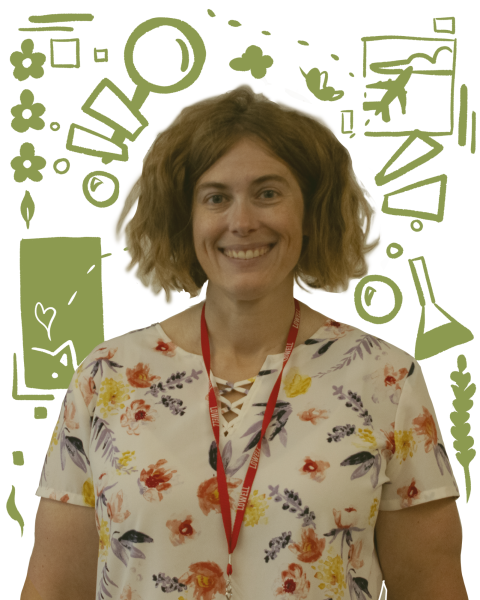
Chemistry teacher Katrina Rotter previously worked at Lowell for 12 years, and is happy to be back. Growing up near Seattle, Washington, Rotter attended a small high school for just one year before attending the University of Washington, starting at age 15. An avid traveler, Rotter also enjoys reading comics and spending time with her cats. Now that she’s back at Lowell, she hopes to inspire her students to be curious about science and be responsible for their own futures.
Could you tell me your full name and what subject you teach?
Katrina Rotter, and I teach regular chemistry.
What made you want to become a teacher?
When I was in college, I was tutoring to pay for college, and I enjoyed doing work study at middle schools and stuff like that, and I TA’d for an undergrad course and enjoyed that. I didn’t wanna do research, when you’re a science major you enjoy the science, but if you know you don’t wanna do research, you gotta think about what paths make the most sense. Once I got into it, I enjoyed it, so I kept going.
Is there something that made you particularly interested in Lowell?
I taught at Lowell starting in 2004, and then left in 2016. When I first came, it was straight out of undergrad, my graduate school for getting my teaching degree, so part of it was there was an opening. And I knew it was a good school, but I didn’t know anything about the school, really. I just came and applied and luckily got a position, and it was like, “Okay!” I really loved it and I didn’t want to leave, really. I left because I wanted to work on the curriculum, but I’m really happy to come back.
What would you say is your favorite part of teaching?
I enjoy that the day-to-day, and even class-to-class, it changes. It requires me to think, so I can’t just get up and repeat the same thing five times during the day. Every student thinks differently, every year things are different, so that makes me mentally challenged, which I enjoy.
If you could choose any other subject to teach, what would it be?
If it was science, it would be more bio-chem range. Definitely not physics, I am not a good physics person. Other classes, it’s like, what would I be capable of teaching? Basic English? I’m not capable of teaching other high school classes, content-wise. In college, I got a chance to learn a lot about ancient Rome, like history stuff, history and art, but none of those people were the ones in my science classes. But that’s a subject I like, it’s not really a specific course. Ancient Greek and Roman history and art.
What’s something you think your students would be surprised to find out about you?
I only did one year of high school, and then went to the University of Washington and started college at 15. That’s probably the most surprising. If I had had a school like Lowell, I probably would have come to a school like Lowell. We had one high school that had a total of 800 kids, so there weren’t a lot of opportunities for advancement, and that was kind of why I moved towards the program I did. This was in the Seattle area. The University of Washington has a program for the Seattle area.
Could you tell me a bit about your life outside of school?
I love to travel. I just got back… I had a year-long travel year, a sabbatical year, traveling all over the world. I went to Africa, Antarctica, Europe, and then Japan and China. That’s something I really love. Being a teacher and having summers is great, [but] the sabbatical allowed me to go places, particularly like Antarctica, that you can’t go during summertime here. I love my cats, lots of cat pictures — I’m a cat lady. I’ve taken up reading lots of online comics, way too many. I read really fast, so I have a lot of things I’m reading simultaneously, but that’s about it.
Anything else you want to add?
Part of the reason I left was to work on the curriculum, for science, particularly chemistry, trying to make science more relevant and connected to world issues. Like, the spring semester of chemistry is about climate change, so that I think is important. When I first started teaching, it was a lot more focused on theory versus application and moving forwards it is really important for people to see that science is everywhere. Particularly for you guys, your future is gonna be dictated by understanding some of these concepts and making decisions based on some of these concepts.
Nicholas Glow, special education teacher
By Serena Miller
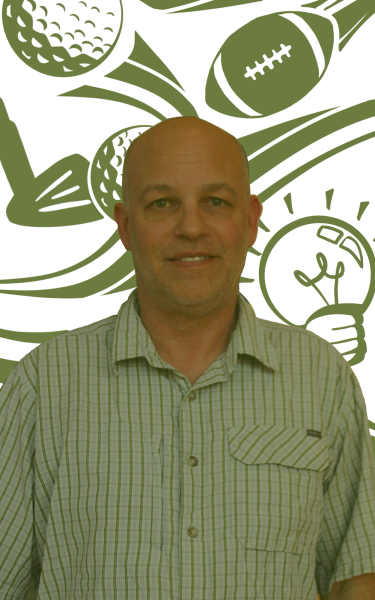
Nicholas Glow was born and raised in the Bay Area, and graduated from Los Gatos High School. He had never planned to be a special education teacher, but he feels that the profession chose him. However, it is fitting that he ended up back in high school, as he describes it as the best time in his life. When not at school, you can find him on the Lake Merced golf course, playing a round. He describes himself as a naturally sporty person, and golf has been his passion since he was young.
What subject do you teach?
I teach special education, basically assisting kids who need a little help staying on track in their classes.
How did you choose that subject?
I used to be in finance and I didn’t like it, so I decided I was going to be a math teacher. At the time, there was an abundance of math teachers, and a high demand for special education teachers, so I was just kind of taken in that direction. I got my teaching credentials at Cal State Monterey Bay, and I have been teaching for 8 years. Long before becoming a teacher, I still worked with kids. I was a camp counselor in Golden Gate Park for the past 20 years.
How did you end up teaching at Lowell?
My wife has been a teacher in this district for 25 years. I was teaching in Pacifica last year, and I just decided to move to San Francisco and got this job.
Where did you grow up?
I grew up in Los Gatos, in the Santa Cruz Mountains, and then went to UCSC, not too far from there. I have been in the Bay Area for almost all my life, although I did spend a little bit of time in South Africa.
What was your high school experience like?
I went to Los Gatos High and played on the football and golf teams. We didn’t have to work as hard as you guys do these days. I remember having barely any homework and doing it in the morning before classes. High school was one of the best times of my life. I loved it. [There was] a lot less pressure and more freedom without cell phones. I had a car and we could go anywhere we wanted, and parents couldn’t really keep track of you.
What is a fun fact you want your students to know about you?
I love to play golf, I golf right here in Lake Merced. I am trying to help out with the golf team this year too, if I get the chance.
What is your favorite part of teaching?
I really like the kids and the relationships I am able to build with them. All kids are great for the most part, even if they are having trouble with school.They are good kids, and they are still young and innocent. I do it for the kids.
Theresa Nguyen, Media Arts teacher
By Ramona Jacobson
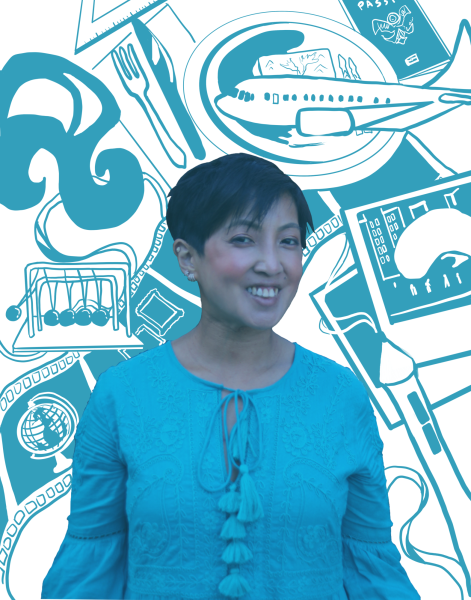
Although Theresa Nguyen is new to teaching at Lowell, her connection to SFUSD goes back to elementary school. A San Francisco native, Nguyen attended Commodore Sloat Elementary School and A.P. Giannini Middle School before coming to Lowell for high school. Despite a stressful, AP-filled high school experience, Nguyen cites both the education she received and the relationships she built at Lowell as foundational aspects of her life. Nguyen teaches Lowell’s new Media Arts class, a combination of digital art, animation, filmmaking, photography, and architecture. While she never expected to become a teacher, Nguyen appreciates the opportunity to educate high school students on subjects that she is passionate about, and finds her job to be joyful and fulfilling. In her free time, Nguyen enjoys traveling and trying new restaurants with her friends.
What inspired you to become a teacher?
That was completely by accident. I graduated from UC Berkeley with a major in cognitive science and a minor in theater and dance. I got a master’s in sound, so I thought I was going to be composing for films. I had to move back to San Francisco from Chicago, and I didn’t really know what to do with my life as an artist, so I took a part-time job at my old elementary school, Commodore Sloat. I was always assigned as the art teacher, and I loved it. I was hired as an art teacher at Presidio Middle School, and now I’m at Lowell. I’m an alum here, and I’ve been wanting to teach high school, so it was a natural choice.
What do you like to do in your free time?
I love food, and every Saturday, I try a new restaurant with my friends in the Bay Area. I love traveling, and I’ve been to over 35 countries. I’m an underpaid teacher, but I try to make it work.
There’s a lot of ways. I have friends in different places, and I feel very lucky that I was able to do as much traveling as I did. Study abroad during college, and take advantage of that. That’s what I did.
If you could choose to teach a different subject, what would it be?
Physics. I had a really good experience taking AP Physics at Lowell. I think if I hadn’t worked at my elementary school, and I decided to be a teacher, physics or math would be my natural inclination. But I feel so lucky to be an art teacher. Students like taking the class and being in the classroom, so I feel very fortunate. It’s very visual, and physics is very visual as well, so I think there’s a lot of overlap.
What was your high school experience like?
Stressful. I took way too many APs. I wish I took more electives, but I was just doing what everyone else was doing, which was trying to get into a good college. I didn’t get a lot of sleep, but I had a lot of good friends. I still keep in touch with them, and we help each other with the job search. That’s my recommendation, to keep in touch with Lowell people, especially if you want to stay in the Bay Area.
What is one thing that you think your students would be surprised to find out about you?
My favorite city in the world is Chicago. I lived there for three years, and I’ve lived in a bunch of places. I lived in London for a year, I lived in Philly for a year, and I lived in New York City for six months. I lived in Costa Rica for six months, Spain for two months, but Chicago was my favorite.
What are you looking forward to the most in your first year at Lowell?
Getting to know the students, and helping them run their student clubs. I said yes to too many clubs, so I think I’m sponsoring like five clubs, but I just want to make sure that they have resources and help them connect with guest speakers. I collaborate with SF MOMA and the De Young Museum, so I hope my students can see their art in the Bay Area, outside of this classroom, to make them feel seen and be like, “Oh, my gosh, we’re in a museum.” I’m like, “Yeah, some people can’t even do that in their lifetime.” I feel very lucky. I get to see them draw, and I have to socialize with them to build a positive classroom environment. I sometimes can’t believe I’m getting paid to do this.


